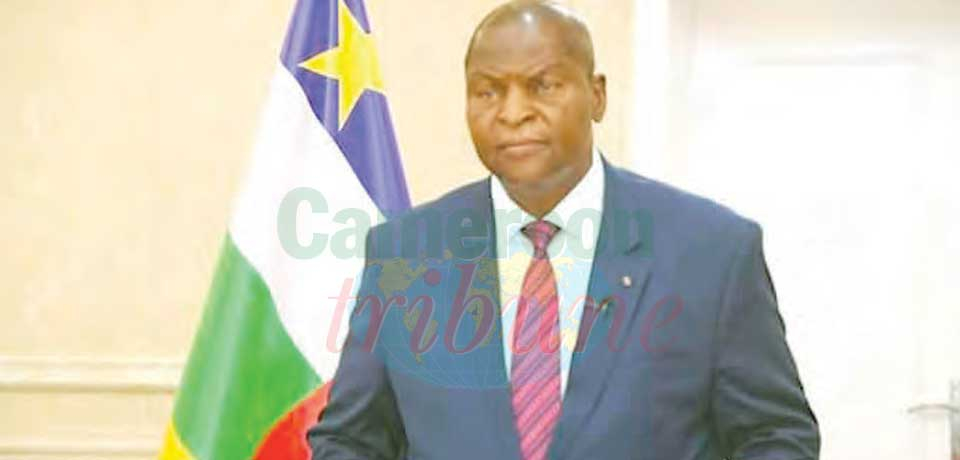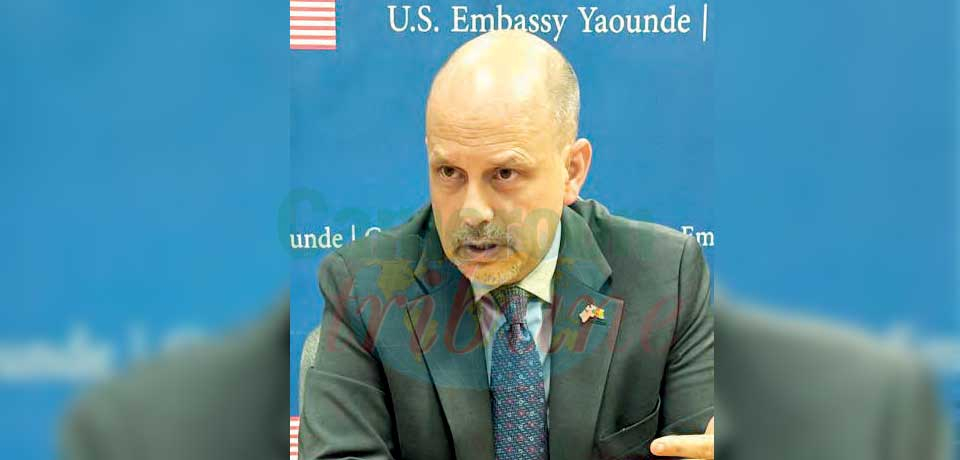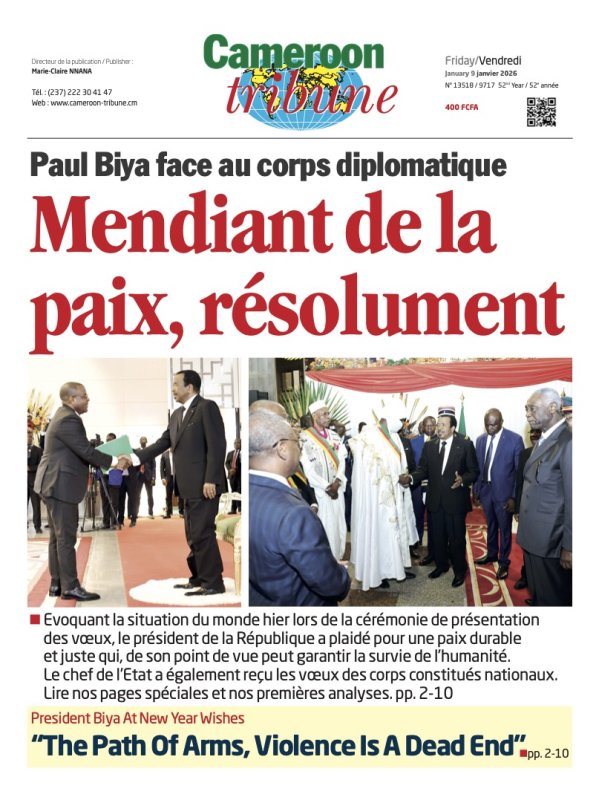Interview: “There’s No Likelihood Of A Conflict Of Great Proportions In 2021”
- Par Kimeng Hilton
- 04 Jan 2021 13:08
- 0 Likes

Prof. Emmanuel Yenshu Vubo, Political Sociologist, Dean, Faculty of Social and Management Sciences, University of Buea, Cameroon, analyses the major happenings of 2020 and predicts what the year 2021 could look like.
What were the most remarkable happenings in 2020, and what impact did they create on world affairs?
The most remarkable happening was the sudden upsurge in the Coronavirus pandemic or COVID-19. It sent the whole world into panic, including countries already affected and those that were under threat. It disorganised industry, production and consumption; affected employment patterns, and introduced social distancing; which changed habits and human relations. It affected US politics as part of the presidential election debates revolved around containing the virus. Some meeting, teaching and learning methods that were hitherto not popular became so common. People accepted to teach on television and radio. The disease confused international relations, affecting ties between America and China, the world’s leading economic powers. Management of the outbreak was also a problem.
Another major event was the outcry against persistent anti-black racism following the killing of an African American, George Floyd, by white policemen in the USA. Starting as a local event, protests soon went global, with blacks in minority situations awakening to the slogan “black lives matter” and shaming racism as an enduring reality. The impact of the transnational character of the movement will be felt very long after. It was a milestone in the black struggle for dignity that has long taken different forms. These include the anti-slavery movement and abolition of slavery through emancipation, de-segregation, the African struggle for independence, the American civil rights movement, the black consciousness movement, and the struggle against Apartheid and racial discrimination in southern Africa.
What lessons could be drawn from these protests?
This global movement highlighted the fact that anti-black racism, although largely discredited, considered politically incorrect and out of the public sphere in many countries, is not yet a thing of the past. Especially with the rise of overt white supremacist movements. It also reminded the world that there are lingering less overt forms of racism that need to be combatted. The struggle is far from over and may take some time. There are signs that things are improving. The recent nomination of several persons from racial minorities to cabinet level positions by US President-elect, Joe Biden - though still to be ratified by Senate - is a good indicator of the impact of this movement.
The other happening, but of a lesser proportion, was the elections in the US. It was not an election as usual. For the first time, we saw the ugly side of American politics. Before now, we were only presented “the American wonder” side of the country whereby people could vote in and vote out their leaders and representatives without much acrimony. Now we know that American politicians can also claim that elections were run without any degree of probity; something that was only common in our own part of the world. The impact of the wrangling was little because it concerned only one country. The assassination of the Iranian nuclear scientist can also be cited, but it was not of major global impact.
How did President Donald Trump’s continuous refusal to concede defeat to Joe Biden have on America’s image as a promoter of democracy and transparent elections?
Conceding defeat is in the domain of custom; it has nothing to do with the legal reality and “factual reality” of elections. Because Trump contested the election results, the discredit does not go to the country or electoral system. It is an individual’s affair. Trump contested, though Biden had several million popular votes more than him. Trump even contested the Supreme Court ruling, some of whose members were appointed by him. Donald Trump is free to refuse to accept the results. This means that you can have a neutral bosdy managing elections, yet some candidates still contest the outcome. Trump came to power when Hillary Clinton led him by more than three million popular votes, yet Clinton did not contest the results. This shows that if President Trump had his way, he would have declared himself winner of the elections.
What happened can weaken the American democratic system especially if a Senate dominated by Republicans (if they eventually take that Chamber of Congress) takes the cue from Trump and decides to paralyse the functioning of government. This could show the limits of America’s dominantly bipartisan (two-party) democracy.
What do you think is going to happen to globalisation under President Joe Biden and the COVID-19 context?
Under Trump, America was on the retreat under the “America first” policy. The US went unilateral instead of working with partners. Trump saw it as a burden taking care of its world partners. It remains to be seen if the new administration will reverse such policies in four years. US foreign policy by nature is forward and backward. What one leader does is what the next might reverse.
Globalisation is not good. It has not always been a positive thing. We hope America will not use globalisation as a pretext to bring the whole world under its feet. We hope the incoming US administration will listen to world leaders and adopt policies that are balanced and in the interest of everyone. There should be more of multilateralism and a multipolar world rather than one dominated by America. It might even have been a good thing for the world that Trump decided to go solo by withdrawing America from the international scene. Even as his reign is drawing to a close, he continues to pull out American troops from abroad. This means less of American direct influence abroad even if at the same time the outgoing President believes he could have resolved some delicate issues single-handedly and in defiance of world leaders. The recognition of Jerusalem as the capital of Israel and Morocco’s sovereignty over Western Sahara when the matter is still pending at the United Nations as well as withdrawal or threat of wi...
Cet article complet est réservé aux abonnés
Déjà abonné ? Identifiez-vous >
Accédez en illimité à Cameroon Tribune Digital à partir de 26250 FCFA
Je M'abonne1 minute suffit pour vous abonner à Cameroon Tribune Digital !
- Votre numéro spécial cameroon-tribune en version numérique
- Des encarts
- Des appels d'offres exclusives
- D'avant-première (accès 24h avant la publication)
- Des éditions consultables sur tous supports (smartphone, tablettes, PC)














Commentaires